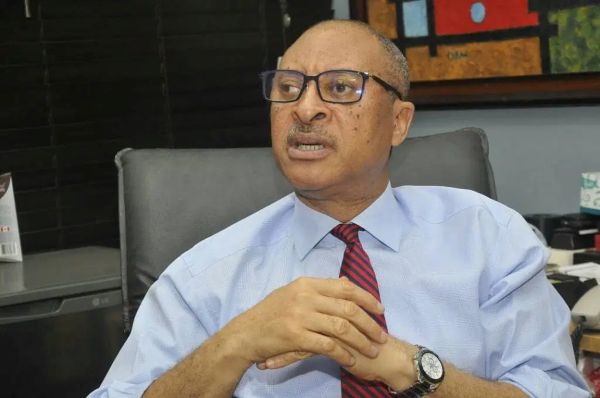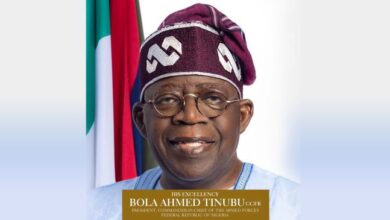
In what could snowball into a major constitutional test and political flashpoint, Nigeria’s domestic intelligence agency, the Department of State Services (DSS), has filed a lawsuit against renowned political economist and former presidential candidate, Professor Pat Utomi, over his controversial move to set up a “shadow government”.
The lawsuit, filed at the Federal High Court in Abuja and marked FHC/ABJ/CS/937/2025, accuses Utomi of attempting to create an unconstitutional parallel authority, a move the DSS contends is a direct affront to the 1999 Constitution and a threat to national security.
DSS Moves to Preempt ‘Constitutional Subversion’
In a suit filed by Senior Advocate of Nigeria, Akinlolu Kehinde, the DSS prayed the court to declare Utomi’s “shadow cabinet” unconstitutional, arguing that its existence could incite political unrest, embolden separatist elements, and undermine the legitimacy of Nigeria’s democratically elected government.
Citing Sections 1(1), 1(2), and 14(2)(a) of the Constitution, the DSS maintained that no entity or individual has the legal authority to establish or operate a governance structure outside constitutional provisions. The agency is also seeking a perpetual injunction to restrain Utomi, his agents, or affiliates from taking any further steps to operate or expand the shadow cabinet.
“The so-called shadow cabinet constitutes an unregistered and unrecognised body claiming to function as an alternative government,” the DSS submitted in its supporting affidavit. “It amounts to usurping executive authority and poses a clear and present danger to Nigeria’s constitutional democracy.”
Who is Prof. Pat Utomi—and Why This Matters
Prof. Patrick Utomi is not a fringe political actor. A respected public intellectual, former presidential candidate under the African Democratic Congress (ADC), and founder of the Centre for Values in Leadership (CVL), Utomi has long advocated for reformist governance. He has been a vocal critic of Nigeria’s political establishment, often using mainstream and social media to call for citizen-led accountability structures.
In recent months, Utomi unveiled what he described as a citizen-centric shadow government—a parallel oversight body comprising portfolio leads in governance, policy, and economics. Notable appointees include rights activist Dele Farotimi and public policy analysts like Cheta Nwanze and Oghene Momoh. According to Utomi, the purpose of the shadow government is to track the delivery of public policy and offer alternative solutions to Nigeria’s myriad governance challenges.
However, the DSS contends that Utomi’s framing is more than academic or symbolic. Citing intelligence reports, the agency argues that the initiative is being marketed to the public as a legitimate alternative authority, and thus has the potential to mislead citizens, weaken government legitimacy, and trigger public disaffection.
Shadow Governments in Context: Democratic Innovation or Subversive Tool?
Globally, the concept of a shadow cabinet is not new. In established parliamentary democracies such as the United Kingdom, opposition parties often form shadow governments to provide constructive criticism and policy alternatives. However, these formations are institutionally recognised and embedded within political party frameworks—not self-declared citizen movements operating outside constitutional boundaries.
In Nigeria’s presidential democracy, there is no constitutional basis for a shadow government, which makes Utomi’s move both novel and provocative.
Legal analysts say the case could test the limits of political expression and civic innovation in Nigeria. While critics of the DSS argue that the suit may chill free speech and democratic discourse, defenders maintain that no individual can assume sovereign authority or mimic executive governance under the law.
Political Undertones and Timing
Coming at a time of rising economic hardship, insecurity, and political disenchantment under President Bola Tinubu’s administration, the lawsuit may also carry deep political undertones.
Utomi’s initiatives—though non-electoral—have resonated among younger Nigerians and reformist circles, many of whom see traditional politics as broken. His move could be read as part of a larger ideological struggle between entrenched political forces and emergent civic-led governance models.
A senior political operative who spoke to BRANDECONOMY under condition of anonymity described the DSS lawsuit as a “warning shot” aimed at deterring other civic actors from adopting radical frameworks to challenge government inefficiency.
What’s Next?
As of press time, the case has not yet been assigned to a judge, but legal fireworks are expected once hearings commence. The outcome could set a precedent for how far civic actors can go in constructing governance alternatives within Nigeria’s constitutional order.
More broadly, this case places the role of state security agencies, constitutional boundaries, and the freedom to innovate politically at the heart of national conversation.
—
BRANDECONOMY’s Take:
While the DSS may be constitutionally correct in asserting the supremacy of the 1999 Constitution, this legal challenge risks escalating political tension and curbing democratic innovation. The judiciary will now play a critical role in balancing state security imperatives with the citizen’s right to engage in political expression, however unconventional. Nigeria’s fragile democracy once again finds itself at a crossroads—between control and creativity.











